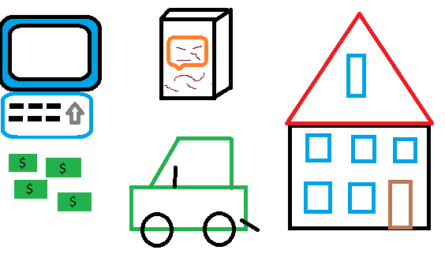Although they may have worked all their lives and thus contributed their share to the common good, more than 18% of all pensioners in Germany are considered poor or at risk of poverty. Often, there is no money left at the end of the month for a visit to the zoo or for coffee and cake. Often there is not even enough money for a new pair of glasses or the co-payment for medication. The consequence is a social withdrawal.
It is often women in particular who have to keep their heads above water financially in old age with small jobs. Although it is already physically difficult for them in old age, many deliver newspapers, sell bread rolls behind the counter or work as cleaners. According to the German Pension Insurance Fund, an average of 970 euros was paid out in pensions in 2020. In the process, men got off much better on average with 1,138 euros than women, who had to settle for just 783 euros. They are significantly more at risk of old-age poverty.
The reasons are obvious: On the one hand, many women interrupt their working lives to raise children or care for parents. At the very least, they go part-time more often and thus pay considerably less into the DRV, resulting in fewer earning points and a lower pension later on. The traditional distribution of roles still has a serious impact on later pensions and is one of the triggers for later social decline.
If they then divorce their husbands, women have to absorb the increased costs of running a single household and find a job again that can provide for their old age. This does not always succeed due to the long break. If this is too long, the requirements for the basic pension are not even met, because only those who have paid in for 33 years receive the top-up.
Unequal earnings, often low-wage sector
The average earnings of women are significantly lower than those of men. According to the Federal Statistical Office, women within the European Union earned about 15% less than men. In Germany, the gender pay gap was even larger at 20%, making Germany the country with the highest gender pay gap in the EU and ranking fifth overall. Only in Estonia, Latvia, Slovakia and the United Kingdom were the pay gaps between the two sexes equivalent or even greater.
Overall, around 20.7% are employed in the low-wage segment in Germany. Here, too, it can be seen that women are particularly affected. Among women, the low-wage rate in 2018 was 18.8 %, while among men it was significantly lower at 12.5 %. Women are more likely to work in low-paying occupations and industries. This makes itself felt later on.
In December 2020, around 1.1 million people received benefits from the basic old-age security scheme. Since older people in particular are reluctant to claim social security benefits – e.g., they are more likely to be in need of a pension.
The German pension insurance fund recommends applying for basic benefits in old age from a monthly income of less than 865 euros. This value is higher than the average pension of all German women…
Keyfacts:
- Women still earn less than men
- Women often take care of raising children
- … or for their parents
- they therefore more often go part-time or interrupt their job completely
- many work in the low-wage sector
- with a divorce everything becomes even more difficult







